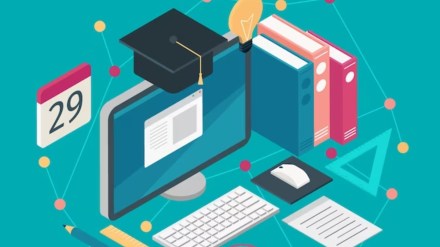By Harshil Gala
India has always put a high value on the development and growth of the education business. To the extent that governments have continuously evaluated educational initiatives in order to generate more opportunities. Traditional educational techniques experienced a strategy shift in the new normal. Educational institutions were pushed to use adaptive learning to help their students learn better, which fuelled the developing edTech sector with fresh ideas.
According to the India Brand Equity Foundation (IBEF), there is a significant chance for India’s ed-tech business to grow to a $ 10 billion economy by 2025. As a result, various reasons such as high internet and smart device penetration, a surge in online content consumption, and a desire for young trained people in the workforce have aided growth and expansion.
A New Reckoning
The rise and expansion of the EdTech sector cleared the way for more adaptive learning, in which coursework advances in accordance with a student’s learning capacity. To achieve the optimal learning approach for a student, this methodology combines new technology such as Machine Learning (ML), Artificial Intelligence (AI), or complex computer algorithms. Adaptive learning is more individualised in that it focuses on the student’s grasping abilities and gives interactive tasks based on their performance to assist them in progress.
Adaptive learning has been shown to be effective at all levels of education, from kindergarten to professional tests, since its inception in the 1970s.
No ‘One Size Fits All’ Strategy
The rise of adaptive learning in the Indian education system has enormous implications not just for students but also for teachers.
Personalisation
In the old school system, there were more students in each class. Students can be divided based on their learning capacities with adaptive learning based on chosen courses and applications. It’s interesting how this idea reduces learning gaps and makes each student unique. When implemented properly, adaptive learning can close the knowledge gap by understanding both real-world contexts and academic ideas.
Non-monotonous
Adaptive learning makes learning more entertaining unlike traditional ‘one size fits all’ methods traditional ‘one size fits all’ methods, and adaptive learning makes learning more entertaining. It is neither a tiresome exercise for students, nor does it test their talents, but rather delivers learning content appropriate to their difficulty or knowledge level. This enhances students’ morale and inspires them to strive for more.
Tech-Advantage
Students today are more connected than ever before. They are effective with devices. Implementing adaptive learning can simply engage pupils better in a setting they are familiar with, capitalising on a student’s love of technology.
Despite the well-planned benefits, there remain barriers to overcome, such as financial considerations, understanding and acceptability with educational institutions, selecting the correct partner, and, lastly, over-reliance on adaptive learning. It is recommended that educational institutions in India consider a hybrid or blending of the finest of both techniques that best fit today’s students and teachers.
The author is CEO of NAVNEET TOPTECH. Views are personal.
